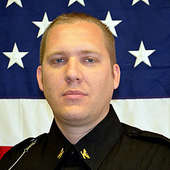Opinion
Learning from the past as we move into the future
Saturday, February 7, 2015
I was cleaning out a file cabinet this week and found an old property deed that belonged to my wife's grandparents. This one looked a little older than any I had seen before, so I started looking through it and noticed the dates were starting back in the late 1800s. As I turned through each page, I noticed one of the pages was signed by Vernon County Sheriff Elkanah M Scroghem, who served as Sheriff from 1894 -- 1898. I have always been fascinated with history and having an original document more than 115 years old is something worth saving! What is it about something being old that makes it more interesting? Is it the curiosity of wondering how different things are now from how they were then? I have never sat and read all the wording on a property deed, but found this one interesting because a large part of it had been written by hand. I believe we have a lot to learn from the past.
One of our questions we ask on our employment tests is, "What have you learned from mistakes on the job?" I interviewed one person who told me he learned almost everything he knows by trial and error. He said he had made a lot of mistakes and therefore learned a lot. Although I understand he was conveying to me that he could in fact learn from his mistakes, I also wondered why he never thought to gain some of his knowledge from the mistakes and successes of others before him. Can anything be successful without learning from the past? Even in law enforcement we must know a great deal about the past. How have certain cases been ruled on in court, what kind of tactics have worked and which ones did not work? When we have a suspect in a crime, what is their history and what is their alibi?
The United States Constitution, our most sacred national document, was written with a great deal of knowledge from the past. I talk to more and more people who say the constitution is out dated and not relevant in our world today. If everyone starts to think like that, we may have to find out all over again why our founders wrote that document in the first place. We also ask a few questions on our written test about the past and our constitution such as, how many amendments are in the bill of rights? I have gotten all kinds of answers ranging from 0 to 25 and one person even wrote, "The bill of rights was a civil rights document written in the 1960's."
George Santayana, who is known for his saying, "Those who cannot remember the past are condemned to repeat it," also said, "If we are to protect the future, we must first know about the past. We must welcome the future, remembering that soon it will be the past; and we must respect the past, remembering that it was once all that was humanly possible."
There is always a first time for everything, and there will always be mistakes along the road, but we must remember that looking to the future cannot be done without first looking in the past, and using that knowledge as we build a better tomorrow.

